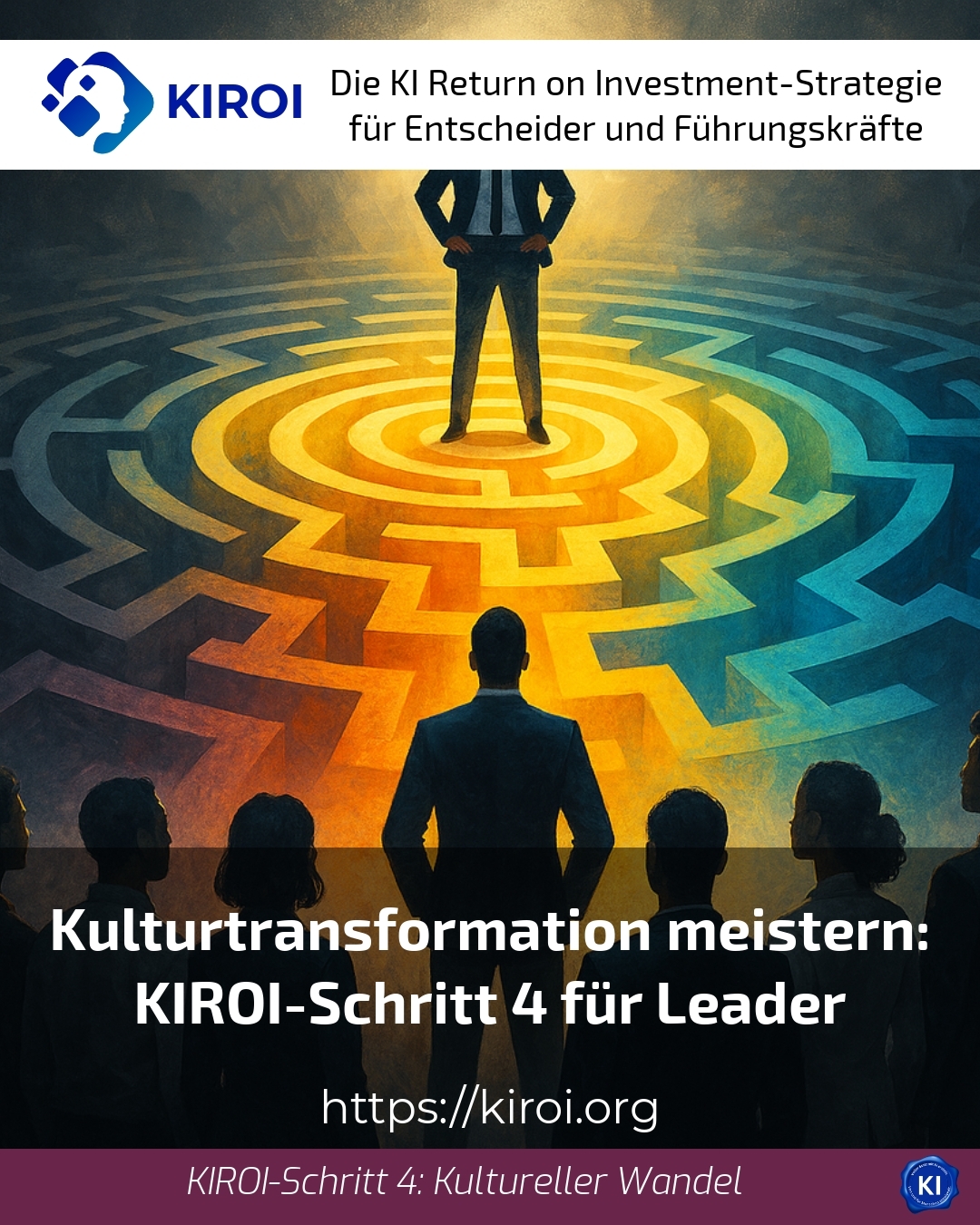Actively managing and supporting cultural transformation
Cultural transformation is a lengthy process that goes far beyond mere change projects. Managers are faced with the challenge of continuously supporting and managing this change. A systematic approach that not only enables measurable progress, but also promotes dialogue within the company, helps here. Active management of a cultural transformation is therefore a key element in achieving sustainable change.
The importance of communication and feedback
A consistent communication strategy is essential as part of the cultural transformation. Managers are particularly challenged to provide continuous feedback and to emphasise the importance of cultural changes in day-to-day interactions. A culture of open dialogue is created when successes and challenges are discussed transparently. This openness favours acceptance and accelerates change because employees feel involved and develop an understanding of the next steps.
KIROI BEST PRACTICE at company XYZ (name changed due to NDA contract) A medium-sized company has helped its managers to conduct regular feedback meetings with targeted coaching. The managers report that the open dialogue has reduced uncertainty. This has motivated employees to try out new behaviours and thus actively shape the cultural transformation.
Regular feedback loops are not a one-off measure, but a continuous process. This is the only way to ensure that the cultural change does not remain on the surface, but becomes anchored in the behaviour and thought patterns of employees.
Continuous support as the key to success
Cultural transformation rarely succeeds overnight. It requires persistent commitment and an accompanying presence at management level. Intensive coaching provides support here by providing impetus and introducing suitable management tools. In this way, project participants are networked and the process is sustainably supported. Managers are empowered not only to initiate cultural development, but also to stabilise it in the long term.
KIROI BEST PRACTICE at ABC (name changed due to NDA contract) A culture team was established in a service company through continuous coaching support. This team not only took on the implementation of the change measures, but also ensured the transfer of knowledge within the company. The long-term support helped to keep the cultural changes alive in everyday life and to continuously develop them further.
Active management is also reflected in the fact that cultural development is seen as an integral part of the corporate strategy. It is not seen as an additional task, but as a core task that must be given resources and attention.
Measurability as the basis for control
To ensure that cultural transformation does not take place arbitrarily, it is advisable to define clear metrics. These allow progress to be monitored and corrective action to be taken if necessary. Feedback from employee surveys, observations in everyday life and key figures on collaboration provide valuable information. This allows managers to maintain an overview of the implementation status and make targeted adjustments.
KIROI BEST PRACTICE at DEF (name changed due to NDA contract) In addition to qualitative surveys, a manufacturing company also analysed team collaboration. The results revealed potential areas of tension, which were addressed through targeted workshops. The systematic measurement of success supported the managers in accompanying the transformation process in a structured and goal-orientated manner.
This measurability makes a cultural transformation tangible and plannable. Managers can recognise potential and remove obstacles at an early stage.
My analysis
The key to successful cultural transformation lies in active and continuous leadership. Without sustained support and clear communication processes, change processes often remain superficial. KIROI coaching provides practical support to managers in taking their respective situations into account and shaping change effectively. Clients often report that this support not only enables them to achieve cultural change, but also to anchor it in the long term.
Further links from the text above:
[1] Cultural transformation - 4 steps and 4 networks
[4] Cultural change: 6 effective steps to change corporate culture
[7] Mastering cultural transformation: KIROI step 4 for leaders
For more information and if you have any questions, please contact Contact us on the topic or read more blog posts on the topic Artificial Intelligence Blog here.















